After organising the first Sustainable Development Days in 2010, where the President and the student Vice-President signed the Charter for an "Alliance of French Universities in favour of Sustainable Development" on 7 April, UNÎMES takes action in favour of sustainable development every year.
Since its creation, the University of Nîmes has been evolved in the Sustainable Development working group of the Conference of University Presidents. In 2010, a Sustainable Development and Social Responsibility (SD&RS) framework was drawn up to facilitate the integration of sustainable development into higher education. Ref. DD&RS 2021
UNÎMES is implementing numerous actions in favour of sustainable development and wishes to progressively reduce its ecological footprint, while improving the quality of life and the diversity of courses offered:
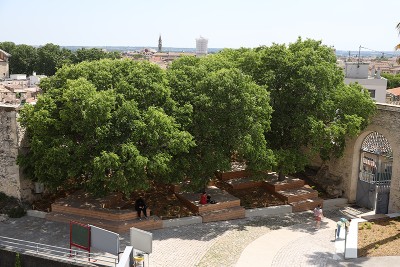
In 2021, the university launched a vast greening project for the Vauban site, which will be carried out over several years. The aim of the project is to fight urban warming and greenhouse gas emissions, while providing students and staff with green spaces to work or relax.
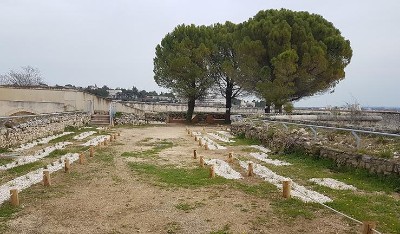
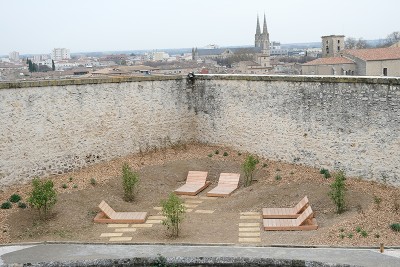
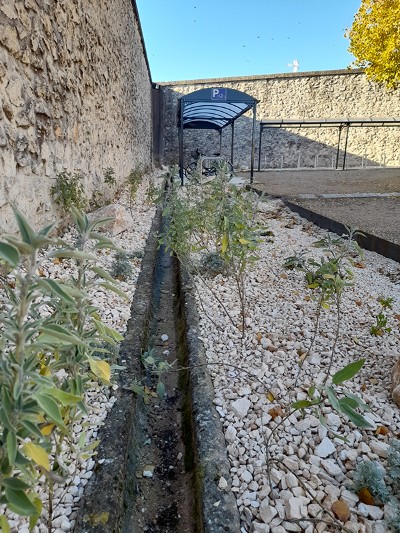
Inaugurated on 8 April 2019, this trail offers 3 areas:
- a natural meadow, nesting boxes and bird feeders,
- a large insect hotel,
- Mediterranean tree species.
This project will increase the visibility of UNÎMES' green spaces and develop student life by creating living spaces.
The university welcomes a wide range of visitors, including schoolchildren.
This project represents the continuity of the partnership with Nîmes local authority.


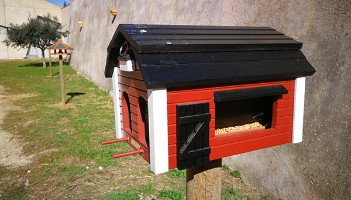
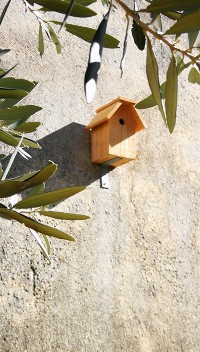
Schoolchildren, local residents and members of the university have access to cultivable areas in the moat.
The shared garden was created at the University of Nîmes with a number of complementary aims:
- thinking about healthy eating
- developing and rehabilitating open spaces at the university,
- create social links between students, staff, local residents and schoolchildren,
- strengthening the university's roots in the neighbourhood.
At the same time, the university and the city of Nîmes have been working together on the European Week for Sustainable Development (Facebook), (SEDD website) for several years.
Schools are also supported in their educational garden projects.
For its part, the Émile Jourdan social centre in Gambetta district has been running various biodiversity initiatives since 2011, using this theme to develop local social links.
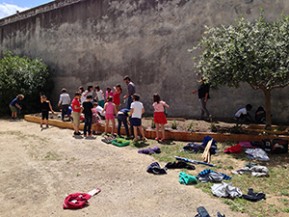
The Emile Jourdan social centre organises visits to the garden for local residents three times a week. Monday, Wednesday and Friday from 9am to 11am.
A class from La Révolution secondary school comes to the garden once a week to plant and learn about soil life and vocabulary.
The University of Nîmes offers courses directly linked to sustainable development issues, enabling all students to reflect on these issues.
Bachelor's degrees :
- Economic and Social Administration
- Life sciences: biology/environment
Professional degrees :
- Dismantling, asbestos removal, decontamination and waste management professions
- Environmental risks and impacts
- Sustainable management of organisations
Master's Degrees :
- Social and environmental psychology
- Public law of local affairs
- Design - innovation - society
- Environmental risks and nuclear safety
- Project management and biotechnology innovation
- Open teaching units: sustainable development, renewable energies, regional planning, food, etc.
- undergraduate and postgraduate internships with local authorities, companies or associations involved in sustainable development,
- research works on themes related to sustainable development as part of their Bachelor's and Master's thesis,
- tutored projects carried out with Master's students (e.g. creation of the shared garden, development of the Solidaribus travelling solidarity grocery project, organisation of the Sustainable Development Week/Week).
The University of Nîmes is developing innovative research themes around chronic and emerging risks and design.
CHROME support team (EA 7352) :
- Pollution and Biodiversity
- Nuclear and Industrial Activities
- Environmental Change
- Risks in emergency situations
Many of CHROME's projects focus on sustainable development issues. They combine human sciences and environmental sciences.
These include
- Internationally, 2 research projects on climate change in Greenland (2011-2021).
- Locally, research on the quality and uses of water in the Vistrenque phreatic table.
PROJEKT Home Team (EA 7447):
Development of user-centred public service design, sustainable territorial design and social and solidarity design.
3 research programmes illustrate this:
- design, beneficiaries, public services
- design, communities and housing practices
- design, care and medico-social life
Areas of research and intervention :
- transformation of public policies
- sustainable regional development
- new forms of housing
- social innovation in healthcare
- connected health
- digital humanities
- educational innovation
The opening of a STAPS department (new academic year 2018) is associated with the development of a "well-being campus".
The university is becoming an actor in primary prevention, as it wishes to instil among its students.
Encourage students and staff to think about :
- the way they eat
- their daily physical activities
- the impact of these practices on their health and well-being.
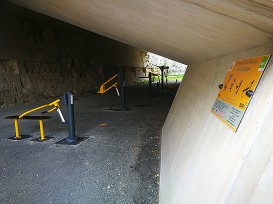
In the moat on the Vauban site, the university has created living spaces (picnic tables, table tennis table, boules pitch). In February 2020, it also inaugurated a FitPark made up of 8 modules funded by the MGEN group and CVEC.
The creation of 4 bicycle shelters with 70 spaces in the north-west and south-west areas of the fort was completed at the end of 2020.
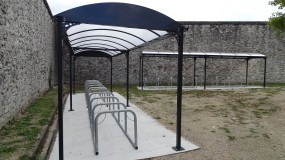
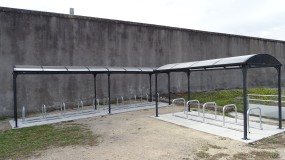
The Vauban campus extension project is also part of this approach, with the creation of :
- 1 Sports centre: 1 sports hall and 2 multi-sports halls,
- 1 Health and student life centre: health centre, offices for associations, student centre,
- 1 Catering area
The Hoche campus extension project:
- 1 New building for research and lecture theatres
- 1 Second renovated wing dedicated to practical work

Accessibility: A fully accessible university for people with reduced mobility:
- All access points have been adapted,
- lift,
- dedicated work space,
- suitable toilets
Disability :
Personalised support for all students with disabilities.
Inequalities:
UNÎMES appointed a gender equality, secularism, racism and anti-Semitism, homophobia advisor in 2017.
Solidarity:
A range of actions, aimed at UNÎMES users in difficulty: social worker and Solidaribus for students, social action service staff.
March 2017, implementation of waste sorting on the Hoche campus, in collaboration with:
- SITOM Sud Gard (inter-municipal union responsible for waste sorting),
- Nîmes Métropole's Department of Household Waste Collection and Sorting (DCTDM).
The CROUS and the ONET cleaning company were also involved in the project.
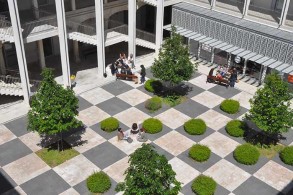
In 2018, selective sorting is introduced on the Vauban campus, along with specific collection bins (batteries, accumulators and mobile phone batteries).
The Hoche campus has been renovated in accordance with specific High Environmental Quality (HEQ) design criteria:
- Low-energy, dazzle-free lighting, self-regulated according to outside light levels. Automatic switch-off 10 minutes after the last person has left the building,
- Thermal comfort and reduced energy consumption (loft, facade and floor insulation; airtightness),
- lower water consumption (timed taps, dual-flush toilets, rainwater recovery for watering).
To reduce its CO2 emissions, the university had to identify the most significant sources linked to its activity. The first step was to carry out a Greenhouse Gas Assessment (BEGES). Following this assessment, the University proposed an action plan for works aimed at reducing greenhouse gas emissions and improving user comfort, taking into account the reorganisation of its campuses over the next 3 years.
Published on November 26, 2024
Elsa Causse
Sustainable Development Officer
Write to her (elsa.causse @ unimes.fr)
Laurent Burté
Head of Sustainable Development
Write to him (laurent.burte @ unimes.fr)
Published on November 26, 2024
